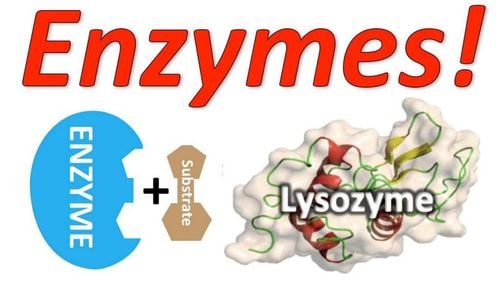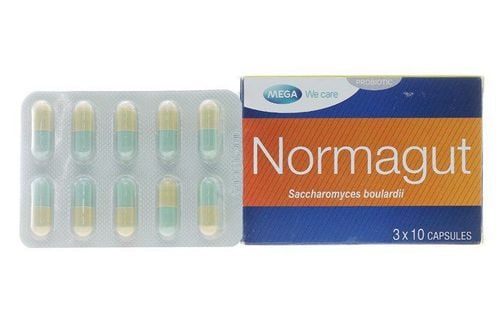This is an automatically translated article.
Digestive enzymes help reduce symptoms of bloating, fatigue after eating, constipation, indigestion, helping to digest food more efficiently. In addition, enzymes also have the effect of reducing and restoring digestive tract diseases.1. What are digestive enzymes? What is the role of digestive enzymes?
Imagine the body as a giant chemistry laboratory and inside the room cells, organs, muscles and bones are reacting to each other. At that time, digestive enzymes act as a catalyst, increasing the rate of the reaction (but they do not change structure during the reaction). This helps limit energy expenditure compared to without the enzyme. Structurally, digestive enzymes are protein molecules made up of many amino acids in different orders to perform different tasks. For example, some digestive enzymes help break down large molecules into molecules that are easier for the body to absorb; Some enzymes have the opposite function of linking small molecules into large molecules to perform a new function.Now imagine a jar filled with magnets. When you first look at the jar, most of the magnets are too far away or in the wrong direction to bond, only a few can attract each other. When we shake the jar, more magnets attract each other, but it also means we use more energy to make them attract each other. Now we put a digestive enzyme in the vial. It will act like a commander, directing the magnets so that they attract each other. Thus, the presence of digestive enzymes helps increase work speed and efficiency, making you spend less energy to navigate the magnet.
2. Digestive enzymes
2.1. Lipase Lipase is responsible for breaking down fats into fatty acids and glycerol. Lipase is an enzyme digested in the stomach and mouth in small amounts and in larger amounts by the pancreas.
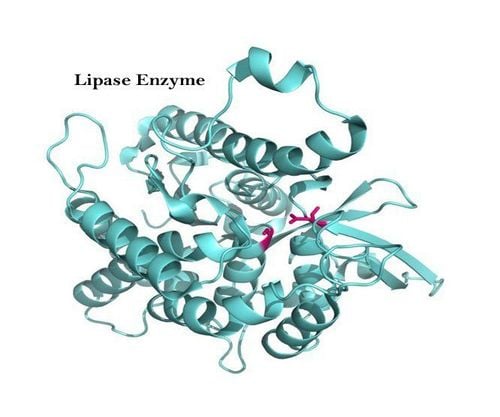
Hình ảnh cấu trúc Enzym tiêu hóa Lipase
2.2. Protease Protease also known as peptidase, proteolytic enzyme, or proteinase, these digestive enzymes break down proteins into amino acids. In addition, they play a role in many body processes, including cell division, blood clotting, and immune function.Protease is a digestive enzyme in the stomach and pancreas that comes in the following forms:
Pepsin : Pepsin is secreted by the stomach to break down proteins into peptides, or smaller groups of amino acids, which are further broken down in the small intestine Trypsin : Trypsin forms when enzymes secreted by the pancreas combine with enzymes in the small intestine. Then, trypsin activates additional pancreatic enzymes, such as carboxypeptidase and chymotrypsin, to aid in the breakdown of peptides. Chymotrypsin: The enzyme chymotrypsin breaks down peptides into free amino acids so that they are absorbed by the intestinal wall. Carboxypeptidase A: Carboxypeptidase is secreted by the pancreas, which splits peptides into individual amino acids. Carboxypeptidase B: Secreted by the pancreas, it breaks down basic amino acids. 2.3. Amylase Amylase, found in the salivary glands and pancreas, is necessary for the digestion of carbohydrates, helping to break down starch into glucose. Occasionally, measuring blood amylase levels is used to aid in the diagnosis of pancreatic and other gastrointestinal diseases.
High blood amylase levels can be caused by pancreatic duct obstruction, pancreatic duct damage, pancreatic cancer, acute pancreatitis. Conversely, low levels are likely to be associated with chronic pancreatitis and liver disease.
2.4. Maltase Maltase is secreted by the small intestine and is responsible for breaking down maltose into glucose for energy release. During digestion, starch is partially converted by amylase to maltose. The maltase then converts maltose into glucose that is used immediately by the body or stored in the liver as glycogen for later use.
2.5. Lactase Lactase (also known as lactase-phlorizin hydrolase) is an enzyme that breaks down lactose, a sugar found in dairy products, into the simple sugars glucose and galactose.
Lactase is produced by enterocytes located in the intestinal tract. Lactose that is not absorbed is fermented by bacteria and can lead to bloating and intestinal disturbances.
2.6. Sucrase Sucrase is secreted by the small intestine, which breaks down sucrose into fructose and glucose, simpler sugars that the body can absorb. Sucrase is found along the intestinal villi that help line the intestines and carry nutrients into the bloodstream.
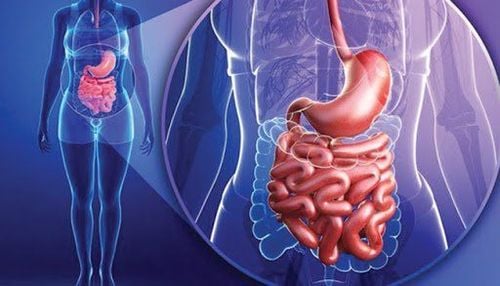
Sucrase là một loại enzym tiêu hóa được tiết ra bởi ruột non
3. Diseases causing enzyme deficiency in the body
3.1. Lactose intolerance Lactose intolerance is the inability of the body to digest lactose because the small intestine does not produce enough lactase. It is characterized by symptoms such as diarrhea, abdominal pain, and bloating caused by drinking milk and other dairy products. There are three types of lactose intolerance: Congenital lactase deficiency: Congenital lactase deficiency (also known as alopecia areata) is a rare inherited form of lactose intolerance, in which children Newborns cannot break down the lactose in breast milk or formula. Accordingly, children can have severe diarrhea if they are not given a lactose-free milk substitute. Congenital lactase deficiency is caused by mutations in the LCT gene, an important gene in the production of lactase enzymes. Lactase Non-persistence: Lactase Non-persistence is a common form of lactose intolerance in adults that affects about 65% of adults. This is due to decreased activity of the LCT gene. Symptoms usually begin 30 minutes to 2 hours after drinking milk. Most people with non-persistence lactase retain some lactase activity and can continue to introduce some lactose into the diet as in cheese or yogurt. Secondary lactose intolerance: Secondary lactose intolerance occurs when lactase levels decrease due to diseases that damage the small intestine such as celiac disease or Crohn's disease, or from other diseases or injuries that affect the intestinal wall.
3.2. Exocrine pancreatic insufficiency The pancreas produces important digestive enzymes, amylases, proteases, and lipases. People with exocrine pancreatic insufficiency (EPI) have a deficiency of these enzymes and are unable to properly digest food, especially fats.
Diseases that affect the pancreas and are associated with exocrine pancreatic insufficiency are:
Chronic pancreatitis: Chronic pancreatitis can cause permanent pancreatic damage over time Cystic fibrosis: Cystic fibrosis is an inherited disease that causes pancreatic cancer. severe damage to the lungs and digestive system, including the pancreas Pancreatic cancer
4. How to supplement the amount of enzymes needed by the body?
4.1. Food Supplements Many foods, especially tropical fruits and fermented vegetables, are high in digestive enzymes that can speed up the digestion of certain nutrients. It is best to consume them raw, as heat can reduce or destroy these plant enzymes.
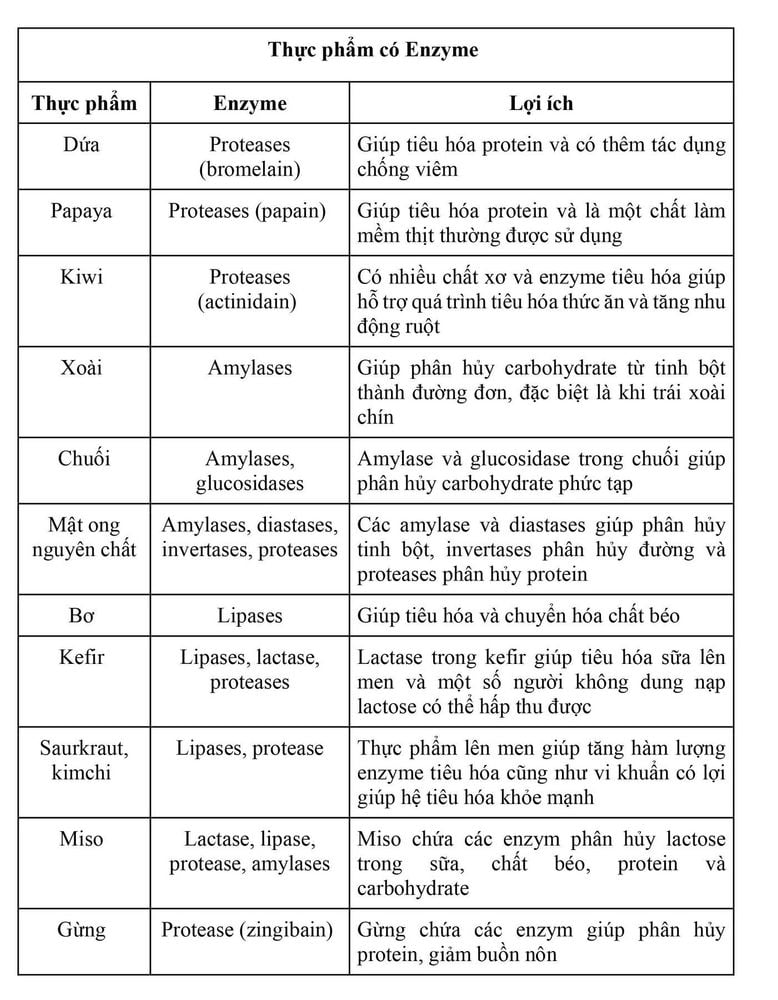
4.2. Enzyme supplements via dietary supplements Digestive enzyme supplements are sold as liquids, tablets and powders, of animal, plant, or microbial origin.
Prescription enzyme supplements are indicated for pancreatic diseases such as chronic pancreatitis or pancreatic cancer. Commonly used products include Creon, Pancreaze, Zenpep, Ultresa, Viokace and Pertzye.
Over-the-counter enzyme supplements are not regulated by the FDA. Therefore, the effectiveness of the drug has not been properly tested. Some of the over-the-counter medications used include:
Lactase supplements : Lactase supplements help people with lactose intolerance digest dairy products. Bromelain: Bromelain is a potent protease extracted from the fruit or stem of the pineapple plant. The drug is sold as capsules, tablets or powders, which aid in the digestion of proteins. Papain: Papain is extracted from papaya, helps with protein digestion, and the powdered form can be used as a meat tenderizer. When using any over-the-counter enzyme supplement, you should also consult your doctor before using it to make sure it's safe to use.
5. Who should take digestive enzymes?
The following subjects can use digestive enzymes to support nutrient absorption and reduce gastrointestinal symptoms:
People with reduced absorption of nutrients from food because enzymes will help maximize optimize the absorption of nutrients People with digestive problems such as bloating, indigestion. The addition of digestive enzymes will help break down starches, proteins and indigestible fats. Elderly with reduced production of enzymes and stomach acid, and increased protein malabsorption. People feel tired after eating. Since digestion accounts for 80% of stored energy, the additional amount of enzymes will help break down nutrients efficiently, conserving available energy reserves. People move a lot because this is the subject of eating a larger amount of food. If food is not digested effectively, it will not meet energy needs, so adding digestive enzymes will promote better nutrient absorption. Enzymes play a huge role in the digestion of food. Accordingly, an enzyme deficiency can cause many health problems. Therefore, please supplement enzymes appropriately through food, functional foods so that the body always has enough enzymes for a healthy digestive process.
Please dial HOTLINE for more information or register for an appointment HERE. Download MyVinmec app to make appointments faster and to manage your bookings easily.
Reference source: verywellhealth.com, therahealth.com




